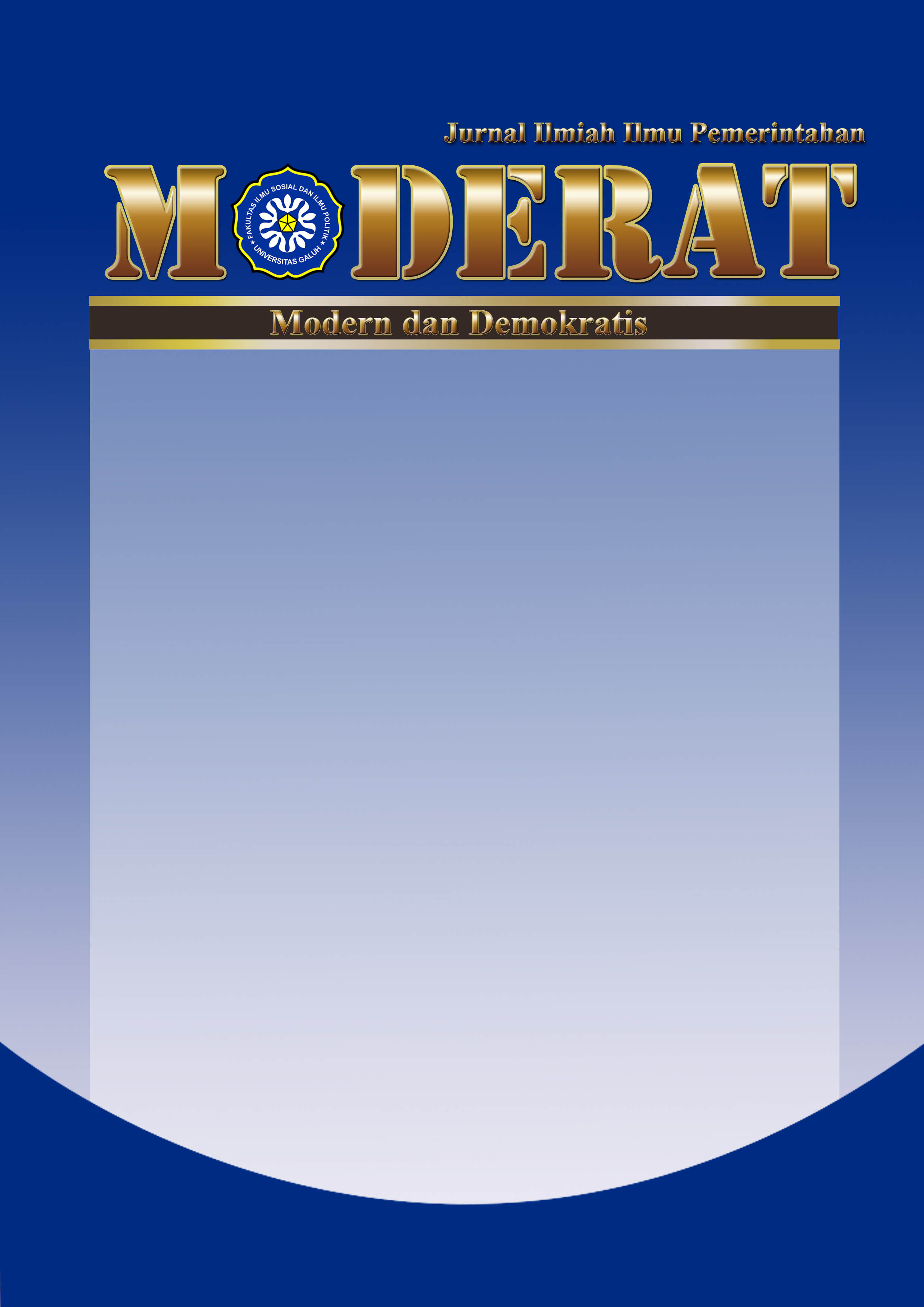UPAYA PENGEMBANGAN ORGANISASI BANK SAMPAH GEMPITA MELALUI INOVASI MAS MUL
DOI:
https://doi.org/10.25157/moderat.v11i2.4824Keywords:
Innovation, Organizational Development, Waste BankAbstract
This study examines how innovation can have a major impact on an organization, both on development and group cooperation. Innovation is a concept, method, or item that is considered new by an individual or group of people. Innovation is not measured by the time of use and discovery, but as long as the idea is new to the individual, that is what is called innovation. This study uses a qualitative method through interviews and observations with the management of the Gempita Waste Bank to find out how the organizational development process is in implementing innovation, as well as the obstacles faced by the organization in the process of making innovation. This study uses Lewin's theory, where Lewin developed Force Field Analysis (FFA) which describes how the dynamics of change management occur within an organization. Lewin's theory consists of three stages, namely the unfreezing process (thawing), change process (change), refreezing process (freezing again). The results of the study indicate the importance of cooperation between organizational management and openness to members towards making an innovation. The recommendation of this study is the need for waste technology that has high economic value. This is very important to maintain price stability and motivate customers.
References
Akhtar, H dan Soetjipto, H.P. (2014). Peran Sikap dalam Memediasi Pengaruh Pengetahuan Terhadap Perilaku Minimasi Sampah pada Masyarakat Terban, Yogyakarta. Jurnal Manusia dan Lingkungan. 21 (3), 386-392
Asteria, D. dan M, Heruman. (2016). Bank Sampah sebagai Alternatif Strategi Pengelolaan Sampah Berbasis Masyarakat di Tasikmalaya. Jurnal Manusia dan Lingkungan. 23 (1), 136-141
Blocker, T.J., & Eckberg, D.L., (1997). Gender and Environmentalism: Result from the 1993 General Social Survey. Social Science Quarterly. 78 (4), 841-858.
Cummings, S., Bridgman, T., & Brown, K. G. (2016). Unfreezing changeas three steps: Rethinking KurtLewin’s legacy for changemanagement. Human Relations,69(1), 33 – 60.
Desy, P. (2020). Modul ManajemenPerubahan Dan Pengembangan (Ebm 513). Universitas Esa Unggul.
Hossan, C. (2015). Applicability ofLewin’s Change Management Theory in Australian LocalGovernment. International Journal of Business and Management. 10(6), 53 – 65.
Jumar, Fitriyah, N., & Kalalinggi, Ri. (2014). Strategi Pengelolaan Sampah Rumah Tangga Di Kelurahan Lok Bahu Kecamatan Sungai Kunjang Kota Samarinda. 2(1), 101-112.
Kristina, H. (2014). Model Konseptual Untuk Mengukur Adaptabilitas Bank Sampah di Indonesia. J. Tek. Ind. 9(1), 19-28.
Levasseur, R. E. (2001). People skills: Change management tools -Lewin’s change model. Interfaces. 31(4), 71 – 73.
Peraturan Pemerintah No. 81 Tahun 2012 Tentang Pengelolaan Sampah Rumah Tangga Dan Sampah Sejenis Sampah Rumah Tangga
Peraturan Daerah Provinsi DIY No. 3 Tahun 2013 Tentang Pengelolaan Sampah Rumah Tangga dan Sampah Sejenis Sampah Rumah Tangga
Purba, H.D., Meidiana, C., & Adrianto, D.W. (2014). Waste Management Scenario through Community Based Waste Bank: A Case Study of Kepanjen District, Malang Regency, Indonesia. International Journal of Environmental Science and Development.
Schein, E. H. (1996). Kurt Lewin’s change theory in the field and inthe classroom: Notes toward amodel of managed learning. Systems Practice. 9(1), 27-47
Singhirunnusorn, W., Donlakorn, K., & Kaewhanin, W. (2017). Household Recycling Behaviours And Attitudes Toward Waste Bank Project: Mahasarakham Municipality. Journal Of Asian Behavioural Studies, 2(5), 17.
Winarso, H., dan Larasati, A. (2011). Dari Sampah Menjadi Upah: Inovasi Pengolahan Sampah di Tingkat Akar Rumput Kasus Program Bank Sampah “Sendu” di Kelurahan Pasar Minggu Jakarta Selatan. J. Mns. dan Lingkung. 18, 43–39.
Downloads
Published
How to Cite
Issue
Section
License
Copyright (c) 2025 Moderat : Jurnal Ilmiah Ilmu Pemerintahan

This work is licensed under a Creative Commons Attribution 4.0 International License.
Moderat : Jurnal Ilmiah Ilmu Pemerintahan © 2023 by Program Studi Ilmu Pemerintahan is licensed under CC BY-SA 4.0




















